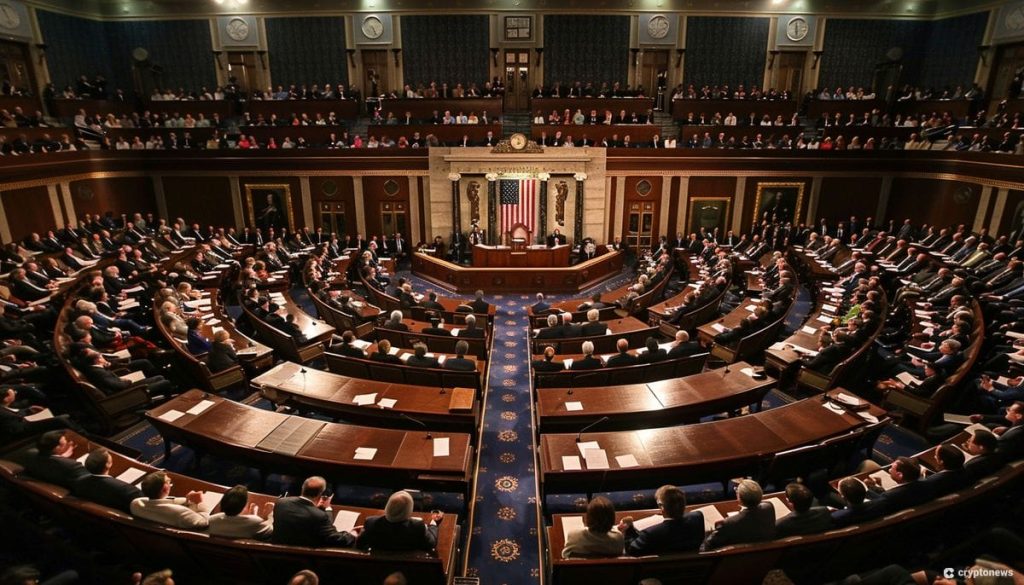The US House of Representatives recently approved a bill, known as the CBDC Anti-Surveillance State Act (HR 5403), that prevents the Federal Reserve from issuing a digital dollar, or central bank digital currency (CBDC), without explicit authorization from Congress. The bill passed with a vote of 216 to 192, with Republicans expressing concerns about potential government control over citizens’ finances that a US CBDC could entail. Former President Trump has also expressed opposition to a CBDC, citing concerns about government overreach and the potential for a digital dollar to be used as a surveillance tool. House Majority Whip Tom Emmer, who introduced the legislation, argued that a digital dollar could give the government absolute control over individuals’ money, enabling them to track transactions and restrict activities they deem politically undesirable.
The recent House vote reflects ongoing worries among Republicans, including former President Trump, about the implications of a US CBDC. Trump has been vocal about his opposition to a digital dollar, stating that it could enable the government to take control of individuals’ money without their knowledge. The American Bankers Association (ABA) also urged House leaders to support the CBDC Anti-Surveillance State Act. The current Presidential candidate has vowed to block the creation of a CBDC if re-elected, further highlighting the contentious nature of the issue.
In a separate development, the House of Representatives passed the Financial Innovation and Technology for the 21st Century Act (FIT21) on Wednesday with a vote of 71 Democrats and 208 Republicans. This bill focuses on establishing a new crypto market structure and granting more authority to regulatory bodies such as the US Commodity Futures Trading Commission and the Securities and Exchange Commission in overseeing digital assets in spot markets. The passing of FIT21 marks a significant milestone for the crypto industry as it is the first bill solely dedicated to regulating the crypto market that has been approved by the House.
Despite the industry’s celebration over the passage of FIT21, there are challenges that lie ahead. Alan Mittleman, COO of Secure Digital Markets, highlighted the need for a companion version of the bill in the Senate, along with potential opposition from vocal crypto critics like Senator Elizabeth Warren. President Joe Biden has also expressed concerns about the bill, particularly around consumer protections, suggesting that more work may be required for FIT21 to pass through. Mittleman emphasized that while the House vote on FIT21 is a positive development for the crypto industry, the bill’s journey to becoming law is far from over and may face further scrutiny and revisions before being enacted.













